News + Media
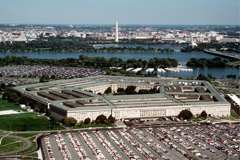 |
Analysis + OpinionMarch 21, 2006Weighing the cost of today's defense strategyCindy WilliamsBoston GlobeThe House of Representatives last week voted to add $68 billion to Defense Department coffers to help defray this year's costs of the wars in Iraq and Afghanistan. Together with the $536 billion in outlays already planned for national defense, the emergency appropriation will bring total defense spending this year to some $600 billion. Adjusting for inflation, that is substantially more than the United States spent on defense in any year since World War II. |
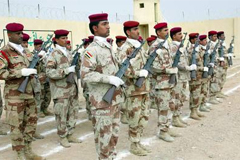 |
Analysis + OpinionMarch 7, 2006Diversifying Iraqi security forcesRoger Petersen and Paul StanilandChristian Science MonitorFor a stable Iraq, Sunnis, Shiites, and Kurds must share the security burden. |
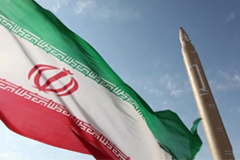 |
AuditMarch 1, 2006We can live with a nuclear IranBarry R. Posen, MITThe intense concern about Iran's nuclear energy program reflects the judgment that, should it turn to the production of weapons, an Iran with nuclear arms would gravely endanger the United States and the world. Indeed, while it's seldom a positive thing when a new nuclear power emerges, there is reason to believe that we could readily manage a nuclear Iran. |
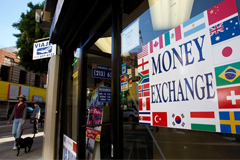 |
AuditMarch 1, 2006Remittances: Latin America's faulty lifelineCatherine Elton, MITIn recent years, the money that migrants send back to their native countries has become a hot topic in international development circles. Multilateral banks, the governments of migrant-sending nations, the U.S. Government, and international development organizations laud the potential that remittances have to reduce poverty and promote development. Remittances are being exalted as “the new development finance,” and a ticket to “high human development,” while the migrants who send them are hailed as heroes back home. |
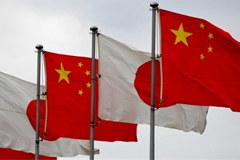 |
AuditMarch 1, 2006Japan-China relations: four fallacies masquerading as common senseKazuo Ogoura, Japan FoundationTo gain insight into the future of the Sino-Japanese relationship, we need to clear up the misconceptions, misunderstandings, and errors that beset the two countries’ relations and take an intellectual scalpel to their source. Some of the errors are related to the way people think about or perceive themselves, while others stem from the thinking or attitudes of the other party; still others are linked to the history of Japan-China relations. |
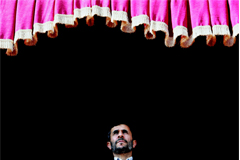 |
Analysis + OpinionFebruary 27, 2006We can live with a nuclear IranBarry R. PosenNew York TimesThe intense concern about Iran's nuclear energy program reflects the judgment that, should it turn to the production of weapons, an Iran with nuclear arms would gravely endanger the United States and the world. Indeed, while it's seldom a positive thing when a new nuclear power emerges, there is reason to believe that we could readily manage a nuclear Iran. |
 |
News ReleaseFebruary 6, 2006MIT's 'Audits of the Conventional Wisdom' gain a broader audience via AlterNetMIT's Center for International Studies (CIS), one of the leading international affairs research centers in the U.S., and AlterNet, an online project of the Independent Media Institute, have announced a unique partnership to bring the best work of academia to broader and more diverse audiences. |
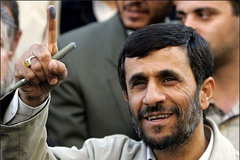 |
AuditJanuary 1, 2006Is Iran's reform movement dead?Fatemeh Haghighatjoo, MITThe surprise victory of Mahmoud Ahmadinejad in the Iranian Presidential election last June brings up the question of whether the reform movement is dead in Iran. Does Ahmadinejad’s success imply that Iranians have economic demands only? Who now are the supporters of reform? |
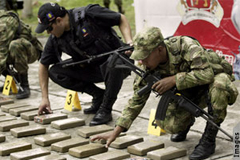 |
AuditJanuary 1, 2006A better strategy against narcoterrorismVanda Felbab-Brown, MITIt is widely recognized that access by belligerent groups to the gains from drug production and trafficking contributes to the intensity and prolongation of military conflict. Also, that such groups—terrorists, insurgents, or warlords—grow stronger when they successfully exploit the drug trade. The United States’ response—its antinarcotics policy—emphasizes crop eradication. |
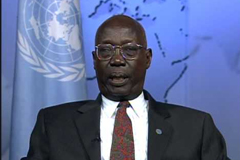 |
News ReleaseNovember 29, 2005Francis Deng to join MIT Center of International StudiesFrancis Mading Deng, research professor of international politics, law and society, and director of the Center for Displacement Studies at the Johns Hopkins University School of Advanced International Studies in Washington, D.C., will join CIS on May 1, 2006, as the Center’s Robert E. Wilhelm Fellow. |

